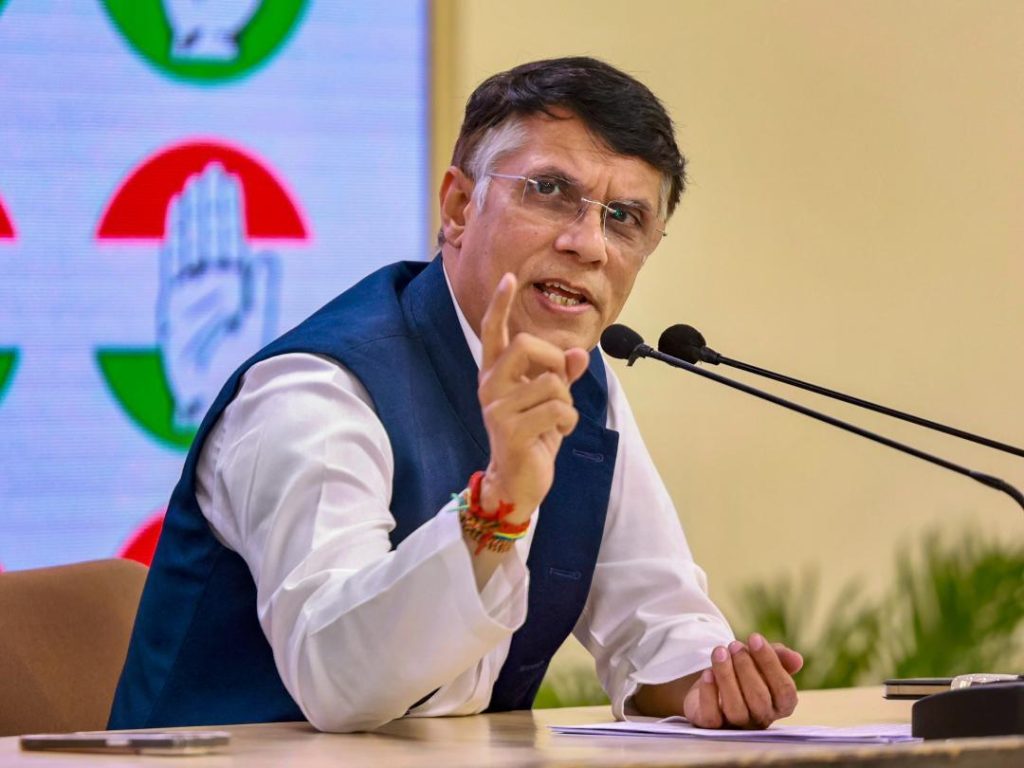
Title: Israel Shares Map Showing J&K in Pakistan, Apologises Later
In a recent incident that has sent shockwaves across the globe, the Israel Defense Forces (IDF) shared a map that showed the Indian Union Territory of Jammu and Kashmir as a part of Pakistan. The incident has sparked widespread outrage and criticism, with many questioning the intentions behind the IDF’s action.
The controversy began when the IDF shared a map on its official Twitter handle, which showed the entire region of Jammu and Kashmir as part of Pakistan. The map was part of a larger illustration that depicted the borders of various countries in the Middle East and South Asia. However, the inclusion of Jammu and Kashmir as a part of Pakistan was seen as a grave mistake by many, including Indian politicians and citizens.
Congress leader Pawan Khera was quick to react to the incident, targeting Prime Minister Narendra Modi and saying, “Another day, another feather in Vishwaguru’s cap. His ‘friend’ shows J&K as a part of Pakistan.” The comment was a reference to the close ties between Prime Minister Modi and Israeli Prime Minister Benjamin Netanyahu, who have often been described as having a “special” relationship.
Khera’s tweet sparked a heated debate on social media, with many people calling out the IDF for its mistake. However, the IDF later issued an apology, saying that the map was an illustration and didn’t depict precise borders. The apology was seen as a half-hearted attempt to rectify the situation, with many people calling for a more robust response from the Israeli military organization.
The incident has raised several questions and concerns. How did the IDF manage to make such a blatant mistake? What was the purpose behind sharing the map, and did it have any implications for India-Israel relations? What does this say about the Israeli military organization’s understanding of international borders and diplomacy?
To understand the context behind the incident, it is essential to look at the historical and political dynamics between India and Pakistan. Jammu and Kashmir has been a contested region for decades, with both countries claiming sovereignty over it. The region has been the site of several wars and tensions between the two nations, with the most recent being the Pulwama attack in 2019.
The IDF’s mistake can be seen as a reflection of the region’s complex and sensitive political landscape. The Israeli military organization may not have intended to spark controversy, but its actions have inadvertently fueled tensions between India and Pakistan.
The incident has also raised questions about the Israeli government’s handling of its relationship with India. Netanyahu has often been criticized for his close ties with Modi, with many accusing him of trying to woo the Indian prime minister through various means. The IDF’s mistake can be seen as a reflection of this close relationship, with some arguing that it has led to a lack of attention to detail and a greater focus on pleasing Indian leaders rather than engaging with the complexities of the region.
In conclusion, the IDF’s mistake of sharing a map showing Jammu and Kashmir as a part of Pakistan is a serious incident that highlights the need for greater attention to detail and a deeper understanding of international borders and diplomacy. While the IDF’s apology was a necessary step, it was a half-hearted attempt to rectify the situation. The incident has sparked widespread outrage and criticism, and it remains to be seen how India-Israel relations will be affected in the future.
News Source:
https://x.com/Pawankhera/status/1933549006367416545






